The post Use of state force against civil liberties: Pakistan Govt. warned of serious consequences’ first appeared on Sindh Courier.
]]>Civil Society leaders raise voice against enforced disappearances and extra judicial killings of citizens
Staff Report
Karachi, Sindh
National Trade Union Federation (NTUF), Human Right Commission of Pakistan (HRCP), Home Based Women Workers Federation (HBWWF) and other organizations of civil society have warned the government that the use of blind state force against civil liberties may bring very serious consequences.
Addressing a press conference at the Karachi Press Club here, they said that enforced disappearances and extra judicial killings of citizens are blatant violations of local and international human rights. “The anti-human excesses of the state institutions against the citizens, especially Baloch people, are brewing a serious crisis,” they added.
The civil society leaders said that recent sad incidents of extra judicial killings of Baloch youths in Turbat, and police torture and arrests of the protest marchers in Islamabad, and attack on their camp by unknown people show that the state and its institutions are bent to violate the constitutional and democratic rights of people.
They said that when a peaceful rally was staged in Karachi against the above-mentioned undemocratic attitude of the state, fake cases of sedation and other serious allegations were lodged against 260 people including NTUF general secretary Nasir Mansoor, HRCP central council member Saeed Baloch, Jeay Sindh Mahaz leader Illahi Bux Bikak and Yekjahiti Committee organiser Abdul Wahid Baloch.
Also read: ‘A looming threat’: In Pakistan, enforced disappearances silence dissent
They said that political and social activists and journalists are constantly being harassed through different institutions. Similar cases lodged against the political and social workers for holding protests are equally condemnable. However, the politically aware circles of the country fully endorse the demands of the Baloch March and participants of their sit-in in Islamabad.
They said that they want to tell the state and its institutions that the basis of Pakistan is democracy and unity of the federal units. However, sadly the basic norms of the constitution and democracy are being continuously violated, whose proof is the forced disappearances of thousands of citizens, especially Balochs, extra judicial killings, mass arrests and fake police cases. It is quite unfortunate that the major political parties, elected houses and courts have failed to check these illegal activities and take action against the elements involved in them. They said that it is the requirement of the law and constitution that these elements should be punished as per law and their excesses against the citizens should be stopped for good.
Also read: Pakistan Court Holds State Responsible for Enforced Disappearances
They demanded that the fake cases against political, labor and human rights activists should be withdrawn; forced disappearances and extra judicial killings must be stopped; all disappeared political and social workers and journalists should be immediately released and those involved in these crimes should be punished.
They demanded that the arrested participants of the Islamabad sit-in should be released and the demands of the sit-in participants should be accepted.
Those spoke included Asad Iqbal Butt chairman HRCP, Zehra Khan General Secretary Home Based Women Workers Federation (HBWWF), Dr. Riaz Shaikh Dean Social Sciences and Education ZABIST, Anees Haroon Chairman National Commission for Human Rights, Gul Rehman president of NTUF Sindh, Dr. Asghar Dashti Chairman International Relations Department Federal Urdu University, Shafiq Sheikh of Awami Workers Federation, Amir Waraich President Karachi Bar Association, Abdul Khaliq Zardan Convenor Awami Huqooq Tehreek, Kami Sid transgender Activist, Muhib Azad General Secretary Sindh Sujahg Forum and Aqib Hussain of Alternate.
_________________
The post Use of state force against civil liberties: Pakistan Govt. warned of serious consequences’ first appeared on Sindh Courier.
]]>The post Sindh Governor says State has failed to ensure welfare of people first appeared on Sindh Courier.
]]>Karachi, Sindh
Sindh Governor Kamran Tessori has said that bona fide charities and non-profits have come to the rescue of the destitute people in the country suffering from unprecedented inflation after state and successive governments failed to ensure their welfare.
Sindh Governor stated this while speaking as the chief guest at a seminar on “Entrepreneurship: much needed for the national economy” organized by the National Forum for Environment and Health (NFEH) here at the Governor House on Friday, says a press release issued by NFEH.
The Governor acknowledged that the state had failed in providing employment and fulfilling the fundamental needs of underprivileged families as charitable organizations had emerged as the last hope for the people living below the poverty line.
He acknowledged that underprivileged families had to face unbearable economic conditions due to massive increase in inflation as the head of a family earning a few thousand rupees every month didn’t have the means to fulfill all the basic needs of the people in his house.
He appealed to the concerned philanthropists and affluent people to generously donate to the sincere and committed charities in the country to help them serve the downtrodden communities in the best possible manner. “Every resourceful person in society has to come forward and play its due role in the present dire situation to lessen the sufferings of the deprived families,” said the Governor.
He also appreciated the various initiatives started by the commercial and industrial entities under the concept of corporate social responsibility for the uplift of the deprived communities in the country. (PR)
__________________
.
The post Sindh Governor says State has failed to ensure welfare of people first appeared on Sindh Courier.
]]>The post France’s 1905 Law of Separation of Church and State first appeared on Sindh Courier.
]]>By Stephen M Davis
The 1905 Law of Separation of Church and State was enacted as the climax of decades of conflict between monarchists and anticlerical Republicans who viewed Christianity as a permanent obstacle to the social development of the Republic. The law ended the 1801 Concordat between Napoleon and the Vatican, disestablished the Catholic Church, and declared state neutrality in religious matters.
France’s Religious Struggle
Following the 16th-century Protestant Reformation, France experienced interminable religious controversy and religious wars. Many believed that a better society would be formed on a foundation that excluded religion and divine authority. The Napoleonic Concordat in 1801 with the Vatican was a step toward societal stability and recognized the legitimacy of other religious expressions alongside the Catholic Church. Although there were no longer wars of religion, soon voices were calling for the end of the Concordat, the separation of Church and State, and a secular nation founded on revolutionary principles.
At the end of the 19th century, the battle for the secularization of France accelerated, and a decisive step needed to be taken. In 1901 the Law of Associations placed the authorization of Catholic teaching orders under the control of the State. The Catholic Church’s influence in education was weakened and the way was prepared for the 1905 Law of Separation of Church and State. The law of 1905, prepared in a passionate climate, was preceded by the rupture of diplomatic relations with the Holy See which rendered the maintenance of the Concordat status quo impossible. The situation of ecclesiastical institutions throughout France was turned upside down. Often presented as an agreement, the law was an act of force that rescinded the 1801 diplomatic convention. In exchange for an independence the Catholic Church was not seeking, the law deprived the Church of its patrimony and removed state subsidies for ministerial salaries.
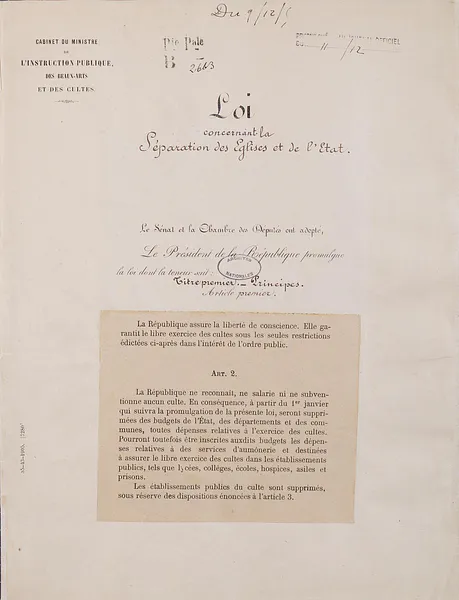
Prelude to Separation
Events in the winter of 1904 contributed to a rupture in relations between France and the Holy See. The rupture originated with a voyage to Rome planned by President Émile Loubet (l. 1838–1929). There had been rumors and discussions on whether the president would request a meeting with Pope Pius X (l. 1835–1914) who was more traditional and inflexible than his predecessor Pope Leo XIII (l. 1810–1903). The president initially signaled his intention to request an audience with the pope. Pius, however, tied any proposed visit to the necessity of discussing the expropriation of Vatican lands from 1860 to 1870 by the Italian government which led successive popes to consider themselves prisoners in the Vatican. In March 1904 the pope addressed the cardinals at the Vatican and criticized the French government. A stalemate ensued between France and the Vatican that was soon aggravated by the president’s voyage which now excluded any audience with the pope.
The president’s voyage to Naples and Rome, Italy, took place in April 1904 where he met with King Victor-Emmanuel III (l. 1869–1947). Together on the palace balcony, they responded to the crowd’s acclamation. The Vatican took offense at the presidential rebuff and indicated that a protest would be lodged against the president’s visit. Three weeks after President Loubet’s voyage to Italy, Rome sent a letter to foreign governments through their diplomatic representatives concerning the French president’s visit to Rome. The letter might have remained an affair among diplomats had Jean Jaurès (l. 1859–1914) now obtained a copy which he published in the newspaper L’Humanité on 17 May 1904. The public revelation of the letter resulted in the recall of the French ambassador from the Holy See, the first major step toward the rupture of diplomatic relations. The pope’s letter revealed that he considered the French president’s trip to Rome and visit with King Victor-Emmanuel III a serious incident over which he took great personal offense. He reminded his readers that Catholic heads of State held special ties with the pope and that government leaders should exercise toward him the same respect accorded to sovereigns of non-Catholic States.
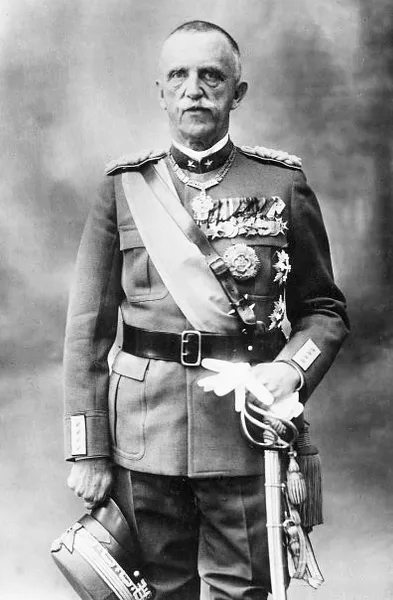
ACCORDING TO JAURÊS, DEMOCRACY ASSURED COMPLETE AND NECESSARY FREEDOM FOR ALL CONSCIENCES, FOR ALL BELIEFS, AND FOR ALL RELIGIONS.
The pope’s criticisms of the French president and accusations of hostility toward the Vatican would not go unanswered. Jaurès contended that the letter was an insolent provocation to both France and Italy. In his view, the pope had not hesitated to accuse the French Republic and its president before other governments. This was considered a declaration of war by the papacy on modern Italy and the Revolution. As a result, Jaurès envisioned the necessity of breaking diplomatic relations between France and the papacy. He declared that the complete emancipation of France, finally rid of all political interference from the Church, now appeared as a national necessity. Politicians, particularly those of the extreme Left, clamored for the immediate termination of the Concordat following the publication of the pope’s letter. The conflict with the Vatican revealed the incompatibility which existed between the traditional Church and the democratic State. This incident presented the opportunity to liberate the State from all religious influence.
On 2 August 1904, Jean Jaurès published a speech in L’Humanité arguing that democracy and secularization were identical. According to him, democracy assured complete and necessary freedom for all consciences, for all beliefs, and for all religions. No religious dogma, however, could become the rule and the foundation of social life. In his opinion, democracy did not require a newborn to belong to any confession, did not require citizens to belong to any religion to guarantee their rights, and did not ask the voting citizen to which religion he or she belonged. He concluded that if democracy was founded outside of all religious systems, if democracy was guided without any dogmatic or supernatural intervention, and if democracy expected development only from the progress of conscience and science, then democracy would be secular in its essence and its forms. A corollary to this reasoning was that education must be constituted on secular foundations. Later that month, on 15 August, Jaurès published an article in La Dépêche du Midi maintaining that it was time for the problems between the Church and the State to be finally resolved (Bruley, 153). For the first time, a timeframe was proposed for a vote on separation early in 1905. The separation would not be decided until December 1905, but the direction of the government and the urgency of action became clear.
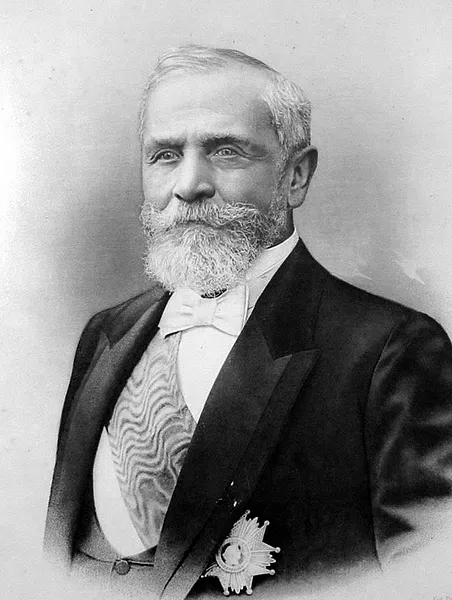
Separation Impending
A speech considered decisive in the movement toward separation was given by Council President Émile Combes (l. 1835–1921) in September 1904. He declared that the religious authorities had shredded the Concordat and he did not intend to patch it up. His understanding of the political system entailed the subordination of all institutions to the supremacy of the republican and secular State, in other words, the complete secularization of society. Combes described the opposition to the Republic from royalists, Bonapartists, nationalists, and clericals, the latter considered the most insidious and the most to be feared. The 1901 Law of Associations had been the first step to freeing the nation from religious control. For the past century, according to Combes, the French State and the Church lived under a Concordat regime that never produced its natural and legal effects and had only been an instrument of combat and domination.
The French government warned the Vatican of the serious consequences of continued violations of the Concordat and demanded that the Vatican confirm whether it would submit itself to the obligations of the Concordat. When the government received no response from the Vatican, Combes informed the Vatican that diplomatic relations were broken and expressed his wish that the separation of Church and the State might inaugurate a new and lasting era of social harmony in guaranteeing genuine liberty to religious communities under the uncontested sovereignty of the State.
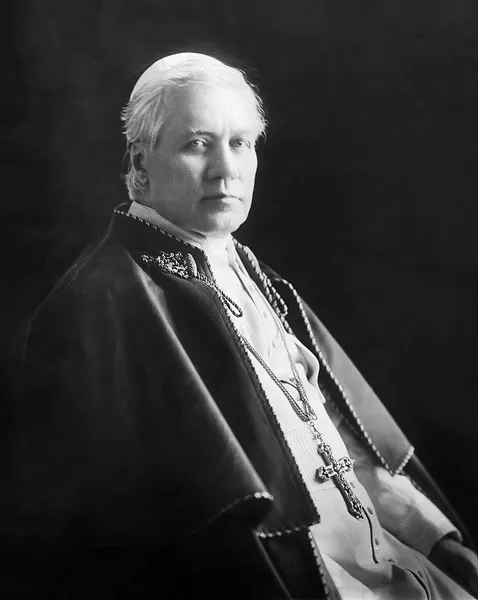
Opposition to Separation
A preliminary proposal for the separation was adopted by the government’s Council of Ministers. In response, Protestant theologian Raoul Allier (l. 1862–1939) wrote a series of articles that had a great impact in shaping public opinion and have become an important source in the history of the separation. Protestants viewed the project as harmful to Protestant churches, a project which would result in a new wave of persecution. Two Jewish rabbis weighed in with their perspectives on the proposed document. Rabbi Zadoc Kahn (l. 1839–1905) expressed his reservations about ending the Concordat, fearing that it would threaten national unity. Rabbi J. Lehmann (l. 1843–1917), director of the Jewish seminary, expressed his concern for religious edifices and religious traditions. With only 100,000 Jewish adherents in France and French territories, the desire was conveyed to continue to live peacefully under current laws as a minority religion.
Albert de Mun (l. 1841–1914), an anti-Republican deputy, vigorously opposed the separation of Church and State. As a Catholic, he regarded the proposed law as contrary to the teaching of the Church. As a Frenchman, he deemed the law in absolute opposition to all the traditions of the ancient Catholic nation and destined to lead the nation to interior and exterior decline. There was fear that the separation would lead to persecution against the Catholic religion which had already suffered from the forced closure of religious teaching orders. Religious war was envisioned as a consequence of the law and in the end, the State and the Church would need to enact another treaty. In the meantime, Mun exhorted Catholics to remain firm and to begin preparation for sacrifices required in a separation described as a “mirage of liberty” (Mun, 64). The bishop of Nancy, Monseigneur Turinaz (l. 1838–1918), explained the reasons for which the Church would fight against the project of separation. The bishop feared the State would take church property without indemnification. He affirmed that the form of government was unimportant to him and that he did not fault the Republic. His opposition was toward governmental decrees and actions done in the name of the Republic.
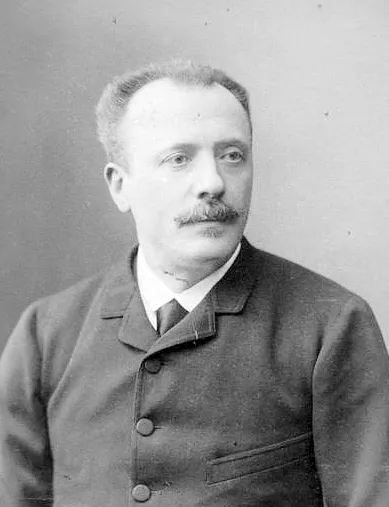
Support for Separation
Paul Lafargue (l. 1842–1911), son-in-law of Karl Marx, supported the abrogation of the Concordat and the proposed separation of Church and State. He believed that the Church would be impacted both in its prestige and economically. He refuted the idea that State subsidies for religious institutions and salaries for the clergy were the nation’s debt to the clergy for confiscations of property and possessions during the Revolution. Lafargue claimed that it was not the nation, but the bourgeoisie which had dismembered and cornered for themselves the lands of the Church and that the revolutionary bourgeoisie, in seizing the possessions of the clergy, had only robbed the robbers. Christianity was described as a constitutional illness that the bourgeoisie had in its blood. He lamented that the revolutionaries of 1789, in the ardor of the battle, had pressed on too quickly in their promise to dechristianize France, and the bourgeoisie was victorious.
Anatole France (l. 1844–1924) published L’Église et la République in January 1905 at the time Parliament was beginning its deliberations on the project of separation. In chapter eight he raised and responded affirmatively to the question, “Must the State separate from the Church?” (France, 91–100). It was argued that the progress of civilization in nations determined a clear distinction between civil and religious spheres. The Concordat was seen as a danger to the State. He related a story from his childhood when he was questioned about his religion for a census. France initially responded that he did not belong to any religion. The census taker prodded him to choose a religion anyway so the form would be complete. When France announced that he was Buddhist, the perplexed census worker replied that there were only three columns to choose from and Buddhism was not among them. For France, that response indicated that the State only recognized three forms of the divine and he regarded as unjust the fact that citizens had to subsidize a religion they did not practice. In reality, “due to the Concordat, the secular State believed and professed the Catholic, Apostolic, and Roman religion” (99).
Separation Voted
Émile Combes resigned in January 1905 and was not able to see his project of separation come to term. A new government was formed under Maurice Rouvier (l. 1842–1911) and continued the march toward separation. The commission listened to many views on separation in seeking the most suitable solutions to confer all liberties and independence compatible with the rights of the State and the preservation of public order. Since the Vatican opposed any reform or changes in the status of the Catholic Church in France, a considerable and often decisive power for action was given to sociologists, Jews, and especially Protestants. Protestants found themselves at the forefront of efforts to fight in the name of all churches. They pursued the task to militate for a law as judicious and as liberal as possible.
On 6 December 1905, Combes, now a senator from Charente-Inférieure, spoke for the democratic Left in expressing their decision to vote for the law as received from the Chamber in the interest of the law’s implementation taking effect on 1 January 1906. The Senate proceeded to vote and approved the law by 181 for and 102 against. There was an amendment to modify the title of the law, which was rejected. The original title was retained: “Loi du 9 décembre 1905 concernant la séparation des Églises et de l’État” and originally contained 44 articles. The Law of Separation was signed by President Loubet on 9 December 1905. Article one stated that the Republic ensured the freedom of conscience and guaranteed the free exercise of religion with restrictions only in the interest of public order. Article two stipulated that the State neither recognized nor subsidized any religion with exceptions for chaplains in public institutions. Subsequent articles dealt with the disposition and distribution of religious properties to associations and the State.
Although the Law of Separation settled the religious question juridically, religious questions did not go away. The application of the law created unforeseen issues, diverse interpretations, and did not end the contentiousness between the Catholic Church and the State. The majority of French citizens remained Roman Catholic, if only in name and by tradition. The law was not negotiated with the Catholic Church and was perceived as an aggressive move against the Church. Protestants largely welcomed the Law of Separation which legally placed them on the same level as the Catholic Church.
Conclusion
The 20th century presented challenges to the Law of Separation, modifications of the law, and new laws to clarify the law of 1905. After several years the Catholic Church accepted and adapted to its new status. There was no turning back to the former state of affairs. The battle for a secular State had been won. The Catholic Church would never again share power with the State. Rulers would never again govern by divine right. Dominique de Villepin (l. 1953–), former French Prime Minister (2005–2007), summarizes the importance of the Law of Separation:
The long path which led to the separation of Church and State flows directly from the inspirational philosophy of the rights of man of 1789…One principle is at the heart of the law of 1905 – Liberty. The law established a direct line between secular society and the revolutionary ideals affirmed in the Declaration of the Rights of Man and of the Citizen. No longer would any religion prevail in exercising any influence on State decisions. (Villepin, 8).
_________________
Courtesy: World History (Published on 02 November 2022)
The post France’s 1905 Law of Separation of Church and State first appeared on Sindh Courier.
]]>The post An unthinkable moral outrage…. first appeared on Sindh Courier.
]]>By Nazarul Islam
An honest opinion that I have shared with my friends, has generated controversies. Today’s Economic prosperity is the greatest threat to disease and despair; it’s what enables people to thrive rather than live hand to mouth, further facilitating the mitigation or avoidance of unhealthy circumstances. The greater the economic prosperity, the better for humanity; conversely therefore, anything that inhibits economic prosperity is a real enemy of human longevity.
The Cato Institute recognizes economic prosperity’s vital importance by co-publishing the annual Economic Freedom of the World. Every country’s economy lies somewhere on the command-market spectrum, and in Cato’s report—the highest scores are awarded to the countries where voluntary exchange dwarfs command and control; however, “most free” does not mean “completely free.”
The world’s top economy didn’t receive a perfect score (10) for the same reason that the world’s destitute didn’t receive a zero: though inherently regressive, legislation can neither produce nor completely stifle human ingenuity.
Contrary to the hubristic claims of those cobbling it, legislation cannot alter human desires, and the wonk who endeavors to show that legislation changes human behavior relies on arguments at odds with reality. A jailed thief is still a thief. People cannot prosper without choices, and “comply or die” is a false choice.
Private property is the foundation for the rule of law in market economies; it follows, then, that private law is the lifeblood of market economies. Private law isn’t an abstract idea; you likely interact with it far more frequently than with ‘public’ law. Think of private law as the eccentricities surrounding the universal belief that force and fraud are immoral, and it is that common recognition that forms mutual trust.
When dining with a friend, whether in his kitchen or at a restaurant, the joy you derive from his company is greater than the annoyance of the surrounding irritants – whether they’re his idiosyncrasies or the restaurant’s. This relationship – a ‘market’ relationship – can voluntarily end as quickly as it began, just as companies (people) can freely enter and exit a market economy (more people).
In a command economy, however, a dictator can impose the rule of law on the entire country just as 50 governors and a president can impose the rule of law on a third of a billion Americans. That scenario is devoid of trust, and because ‘existing’ from it is incredibly difficult – if not impossible – it breeds resentment, not prosperity. The rule of law is only as strong as the trust in it, so laws imposed, by definition, cannot be nearly as effective as those to which people naturally consent.
What produces, what we know as legislation? What enables the thief to choose between instant gratification and incarceration, as opposed to getting rich or getting shot? What’s preventing those who want it from being completely free? What is this artificial barrier to prosperity? It’s not an act of nature, and it existed long before the lockdowns; it’s a sinister invention—whether called “the government,” “the state,” or, as Hans-Hermann Hoppe defined it as “a territorial monopolist of compulsion.”
Regardless of our preferred name for it, one likely trust his (or her) state capitol far less than you trust your local grocery store. The former’s model is parasitic predation; the latter’s model is business. In 1974, Murray Rothbard described what the state is, and in 2013, Jeffrey Tucker described what the State wants:
The state in all times and all places wants a population of despairing, dreary, hopeless, and weighted-down people.
Why? Because such people don’t do anything! They are predictable, categorizable, pliable, and, essentially, powerless. Such people offer no surprises, threaten no change, and destabilize nothing. This is the ideal world that the bureaucrats, the plutocrats, and the technocrats desire. It makes their lives easy and the path clear. Today is just like yesterday and tomorrow — forever.
This is the machine that the state wants to manage, a world of down-in-the-dumps and obedient citizens of the society they think they own.
The state cannibalizes our health – the antithesis of economic prosperity – but the dominant ideology assumes that the state can be reformed. To believe that electing the ‘right’ politician will generate prosperity is to fundamentally misunderstand economics.
The ‘right’ politician can only delay the state’s impending collapse. Overzealous parasitism kills the host, without which the parasite dies. If parasitism could truly yield prosperity, wouldn’t it be obviously apparent by now, and cries to reform it, readily derided?
Have you noticed that the stipulation – “If we get 51% of the vote,” – is always more forthright than what follows? The vagueness is intentional because “we can force our will on the minority” is a tougher sell. The rule of law forged by A and B at C’s expense is the moral outrage known as “democracy.” Injustice begets injustice – a depraved degradation. Unlike market democracy, compulsory democracy is vicious and morbid.
Why is it assumed, then, that a moral outrage is capable of producing prosperity? If political ‘solutions’ are as great as the parasites claim, wouldn’t we be happy to voluntarily subsidize them? When we buy groceries, are we forced to buy food we don’t want? Comply or Democracy forces the obese to buy cake and the alcoholics to buy booze. Private governance provides the only path to pure freedom, without which prosperity is bridled, at best.
When mainstream economists suggest means to achieve economic prosperity, why does an uneconomical, moral outrage tend to dominate their thinking?
[author title=”Nazarul Islam ” image=”https://sindhcourier.com/wp-content/uploads/2021/05/Nazarul-Islam-2.png”]The Bengal-born writer Nazarul Islam is a senior educationist based in USA. He writes for Sindh Courier and the newspapers of Bangladesh, India and America. He is author of a recently published book ‘Chasing Hope’ – a compilation of his 119 articles.[/author]
The post An unthinkable moral outrage…. first appeared on Sindh Courier.
]]>